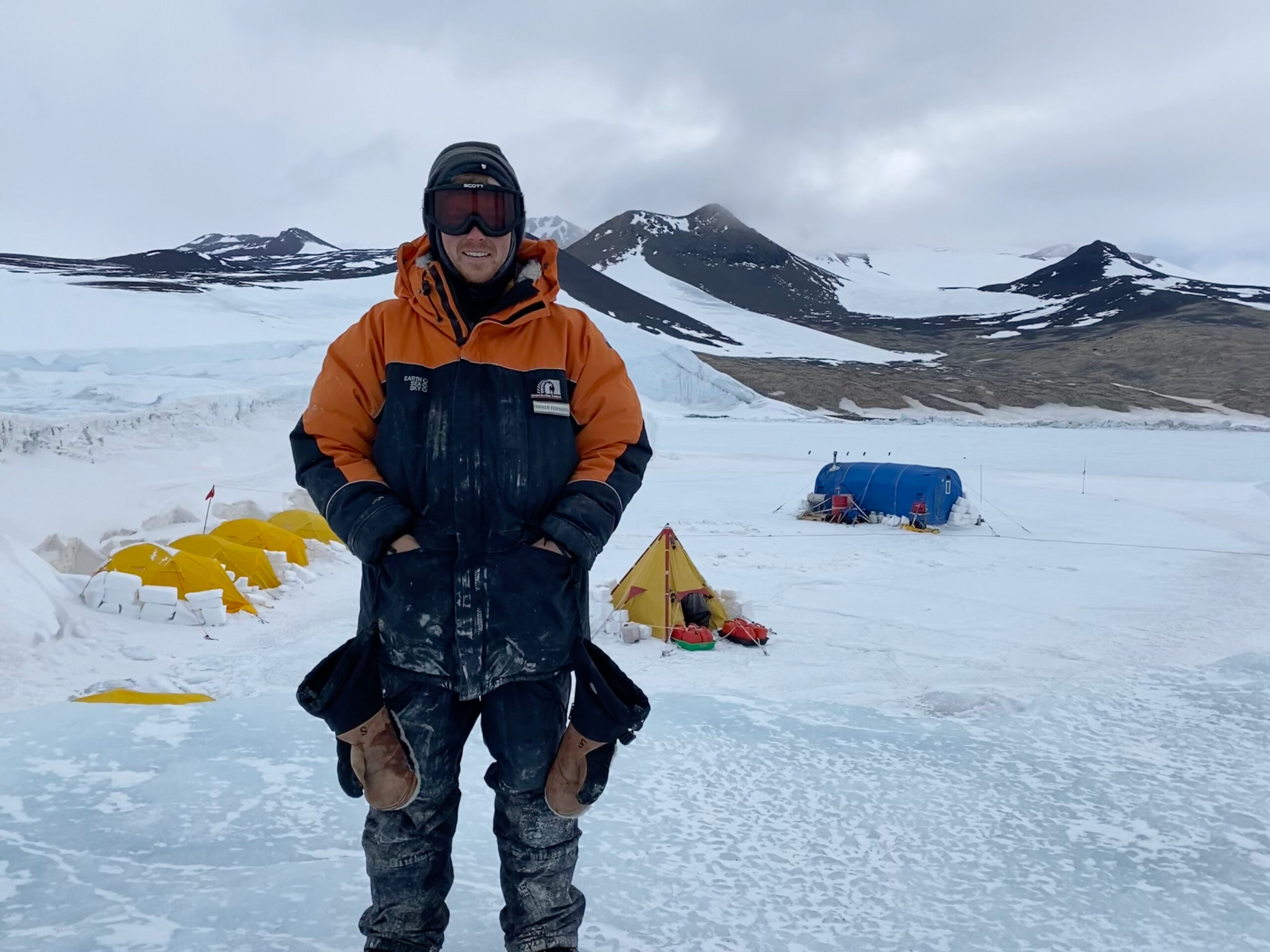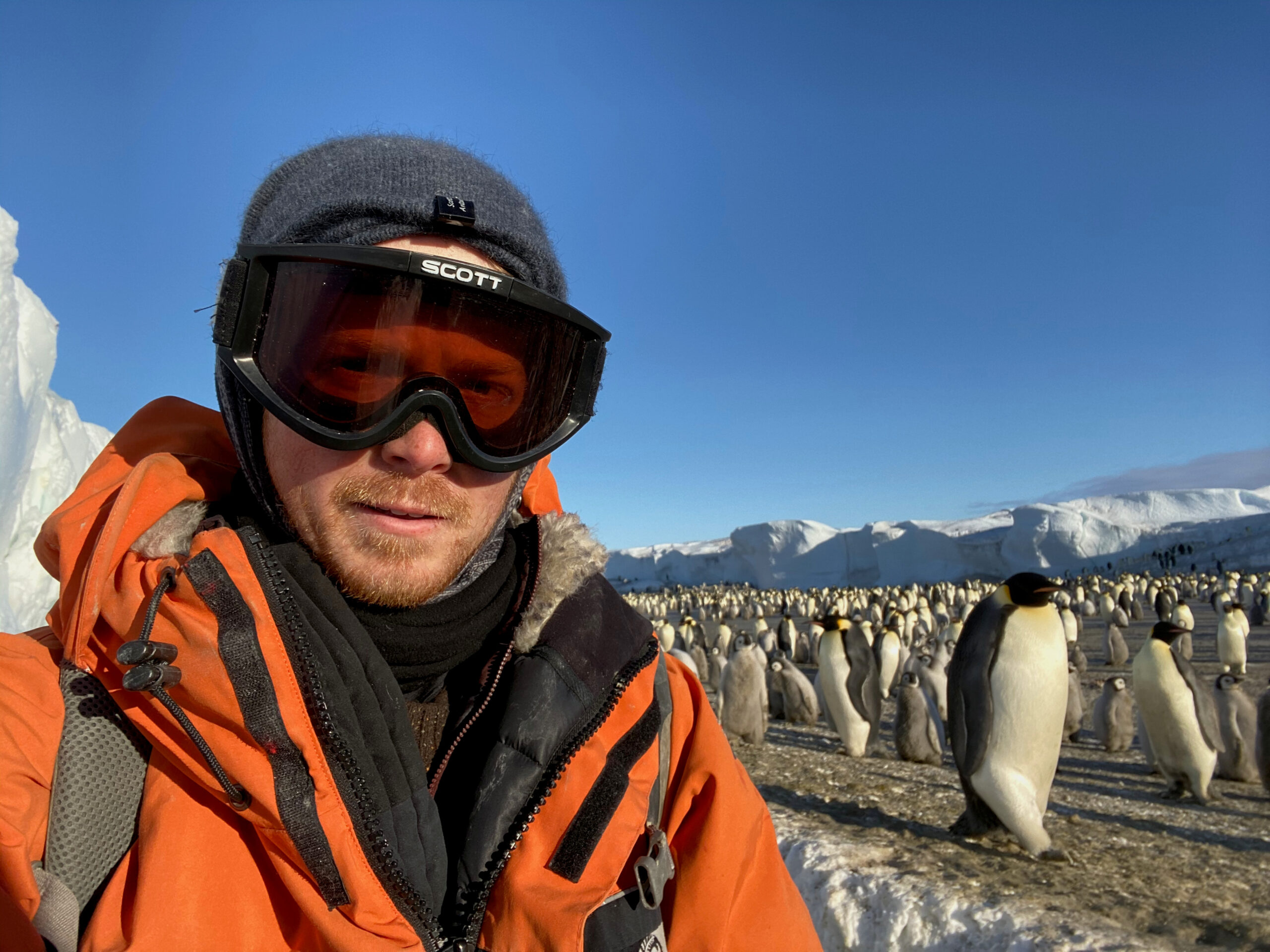"Influence of intrinsic factors on at-sea behavior of late chick-rearing emperor penguins (Aptenodytes forsteri) at Cape Crozier, Ross Island, Antarctica"
A Thesis Defense by Parker Forman
Zoom | Live-Stream | July 19th, 2022 at 12:00 pm PDT
Abstract
I described the at-sea behavior of emperor penguins (Aptenodytes forsteri) during late chick-rearing at Cape Crozier. Analyzing data from eight penguins, I investigated how intrinsic factors, including sex, size, and body condition influenced their behaviors. Penguins exhibited mean trip durations of 10.6±3.4 days, covering a daily distance of 55.7±8.0 km. Penguins predominantly performed dives within the upper 200 meters of the water column (90.7±26.5%), with a smaller proportion of dives (9.3±2.0%) reaching greater depths. Deeper dives were typically associated with shallow bathymetry. Penguins conducted an average of 1,860±681 dives with maximum depths of 455.8±32.6 m and durations of 12.9±2.4 minutes. Penguins spent 66.4±14.8% and 43.9±4.4% of their time at sea resting and diving.
Penguins with similar behaviors were categorized into groups: Group I foraged near the continent and traveled to the Ross Bank, and Group II predominantly foraged near the continent. I found significant differences in foraging behaviors between the groups and sexes. The composition of these groups was influenced by sex. Group I mostly comprised males, while Group II were females and one unknown sex. Females displayed higher dive frequencies per day (Females (F):186±17, Males (M):151±4), shallower maximum depths (F: 432.2±29.4 m, M: 476.8±12.8 m), and shorter durations (F: 3.2±0.7, M: 3.9±0.3). Possible explanations for the observed differences between male and female penguins include energetic requirements, prey preference, physical characteristics, and niche differentiation, which can shape their distinct foraging behaviors.
Furthermore, results from this study indicate that penguin behaviors were also influenced by the physical characteristics and condition of their bodies. This finding suggests that there may be an optimal body condition for achieving greater diving depths. Penguins with intermediate body conditions may possess a more efficient physiological adaptation for sustained deep diving, enabling them to access resources inaccessible to individuals with lower or higher body compositions.
This study advances our understanding of late-chick-rearing penguins and the influence of intrinsic factors on their behavior. The findings indicate that emperor penguins exhibit divergent strategies influenced by sex and physical condition, leading to variations in dive behavior and bathymetry use. These sex-based disparities in penguin behavior highlight distinct ecological roles for each sex within the species. These findings provide a novel description that underscores the remarkable adaptations of emperor penguins in successfully navigating dynamic environments at Cape Crozier.
Bio
Parker Forman is an ecologist recognized for his creative application of datalogging technology to study cryptic species. With a solid understanding of behavioral ecology, Parker illuminates the hidden complexities of these creatures' lives and their interactions with their environments.
After completing his undergraduate studies, Parker embarked on a hands-on role as a biological field technician. His work encompassed diverse demographic studies, contributing to our knowledge of marine and terrestrial vertebrates, including Northern spotted owls, native Hawaiian birds, Northern elephant seals, and fur seals.
In 2018, Parker joined the Vertebrate Ecology Lab at MLML, which marked a turning point in his career. He researched the frigid landscapes of Cape Crozier, Antarctica, focusing on studying the at-sea behavior of emperor penguins. Living in such an isolated location alongside his study subjects provided Parker with firsthand experiences of the lives of these deep-diving seabirds.
Guided by his passion for nature, data analysis, and commitment to conservation, his experiences reinforce his dedication to expanding conservation efforts in ecological discovery.



